Victorian business Slendier makes $10m a year, including Coles and Woolworths listings
She decided to take a chance on it all going “horribly wrong” and sell her house to fund her big idea, which included living on a boat for three years.
Erica Hughes had a high flying corporate career in banking and was raking in the big bucks but when her partner became seriously ill – diagnosed with both cancer and Parkinson’s disease within the space of six months – her world was thrown upside down.
While the 56-year-old’s partner, Andrew, beat the cancer, Parkinson’s is an incurable and degenerative disease, so she decided to take a year off work and focus on their health.
“At the end of the year, the prospect of going back to a corporate job with hundreds of staff in a political organisation had no appeal whatsoever,” she told news.com.au.
“I wanted to do things differently and Andrew and I were ticking things off a bucket list while he was still well.”
Their health journey had led Ms Hughes to discover a pasta made from konjac – an “ugly” vegetable – that created a product with no allergens and also offered a prebiotic kick as part of eating it.
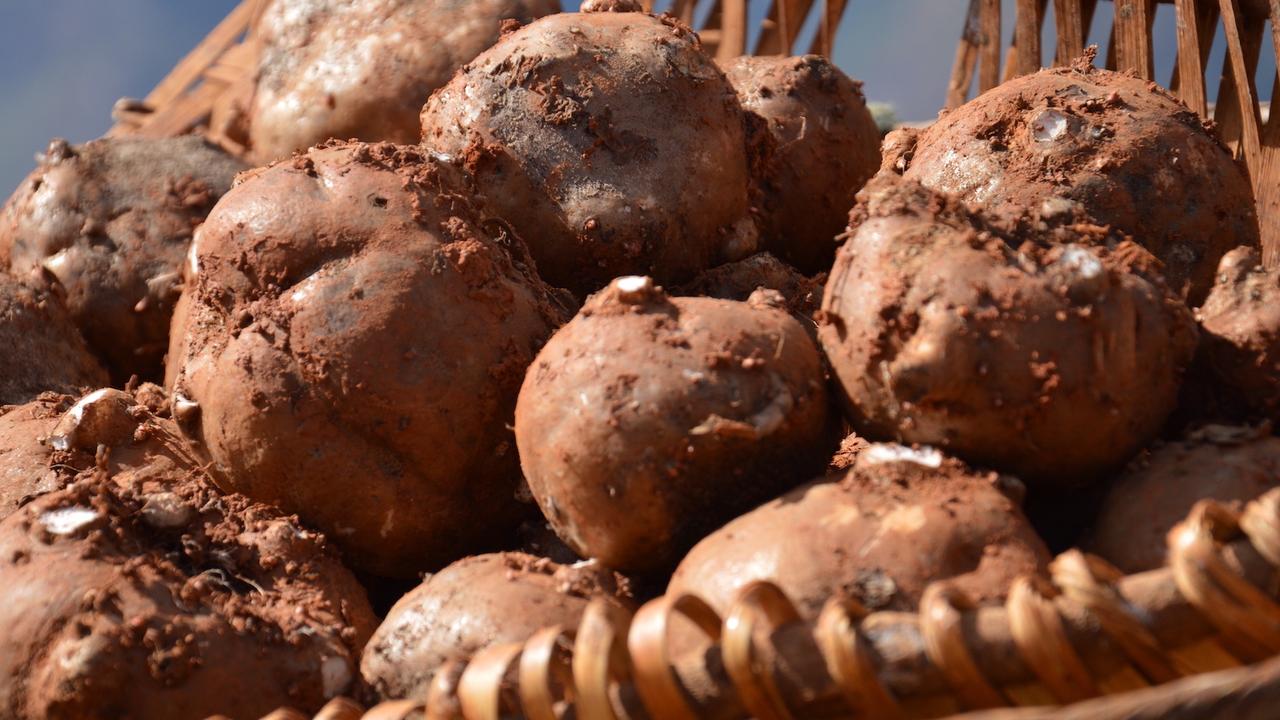
To add to that, konjac pasta has less than 1g of carbs per serve compared to between 60-80g for traditional wheat pasta.
Ready to take a gamble, Ms Hughes sold her Melbourne home to fund a business based solely, at the time, around this humble vegetable.
“As part of ticking off the bucket list, one of the things Andrew wanted was to own a boat. So he bought a boat and we lived on a boat and took it up to the Hamilton Island,” she said. “When I was starting my own business I wanted to work flexibility and work from anywhere and I wanted to travel. The business was running from the back of Andrew’s boat for three years from Europe.
“I was very nervous to sell the home but I think my kids had grown up and had been through university and they had launched their lives so I thought if it all goes horribly wrong it will only impact me.”
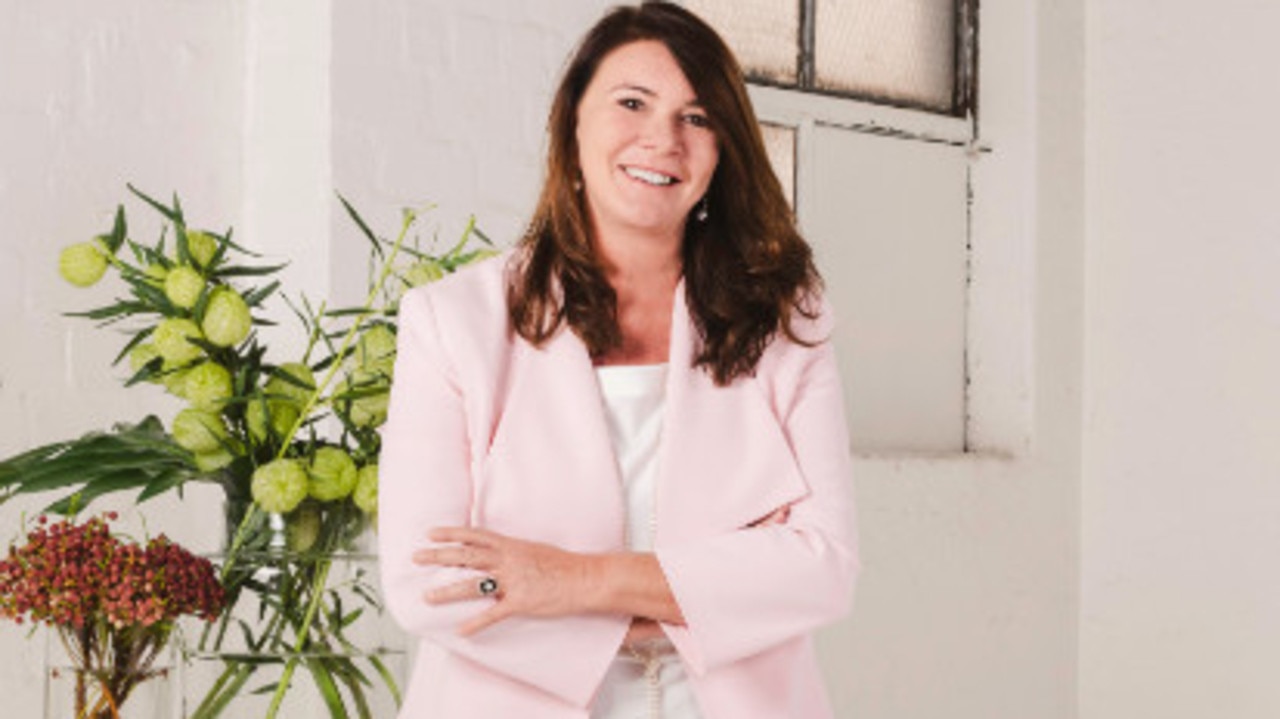
It saw the mum-of-two visiting konjac farms around the world, as the vegetable does not grow in Australia, before launching her business called Slendier in 2017.
“It is a vegetable most people wouldn’t have heard of and it sort of looks like an ugly potato,” she explained.
“It grows underground and it’s harvested every three years like tulips and sits for three months and then its replanted. It grows to the size of a small pumpkin and it’s then milled into flour.”
Slendier started off with a pasta range, with the business beginning online, before being distributed to organic stores and the likes of IGA in Australia and other outlets in western Europe.
Ms Hughes admits that many people thought she was “losing her marbles” launching a business with no experience.
She was even told to run a cafe first but she wanted the challenge of a “complex” brand which involved manufacturing, product development and securing listings.
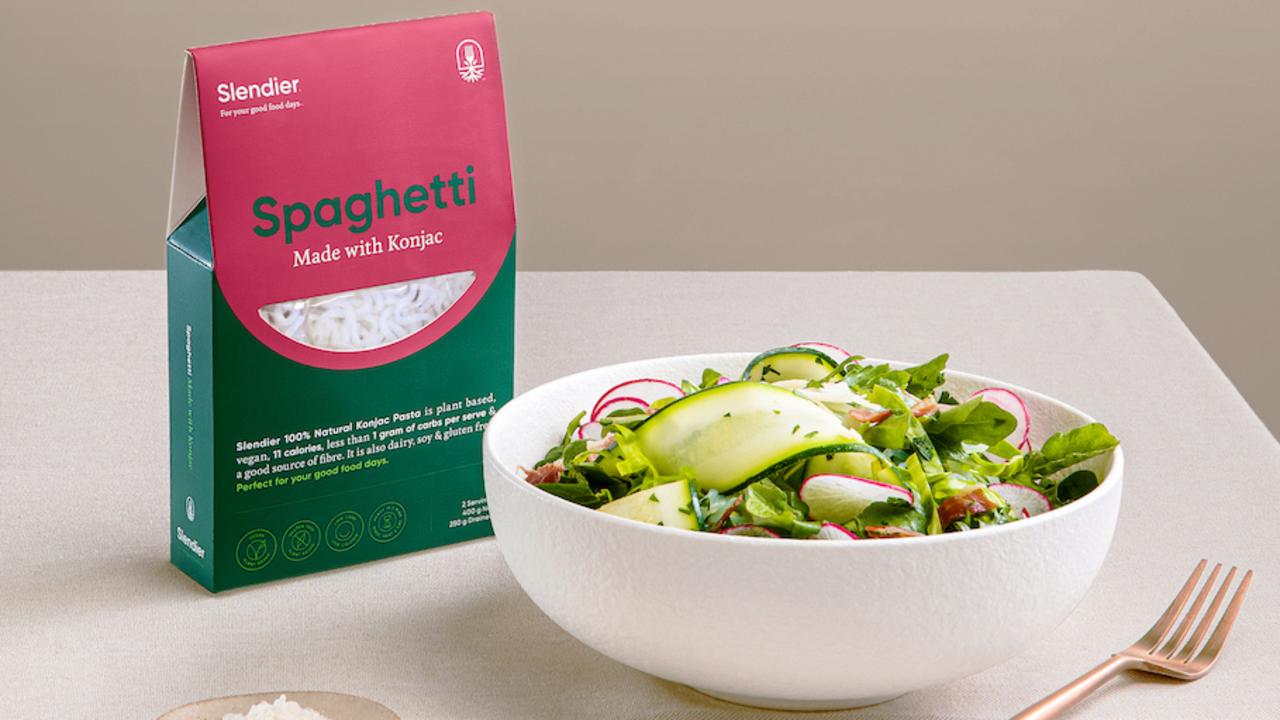
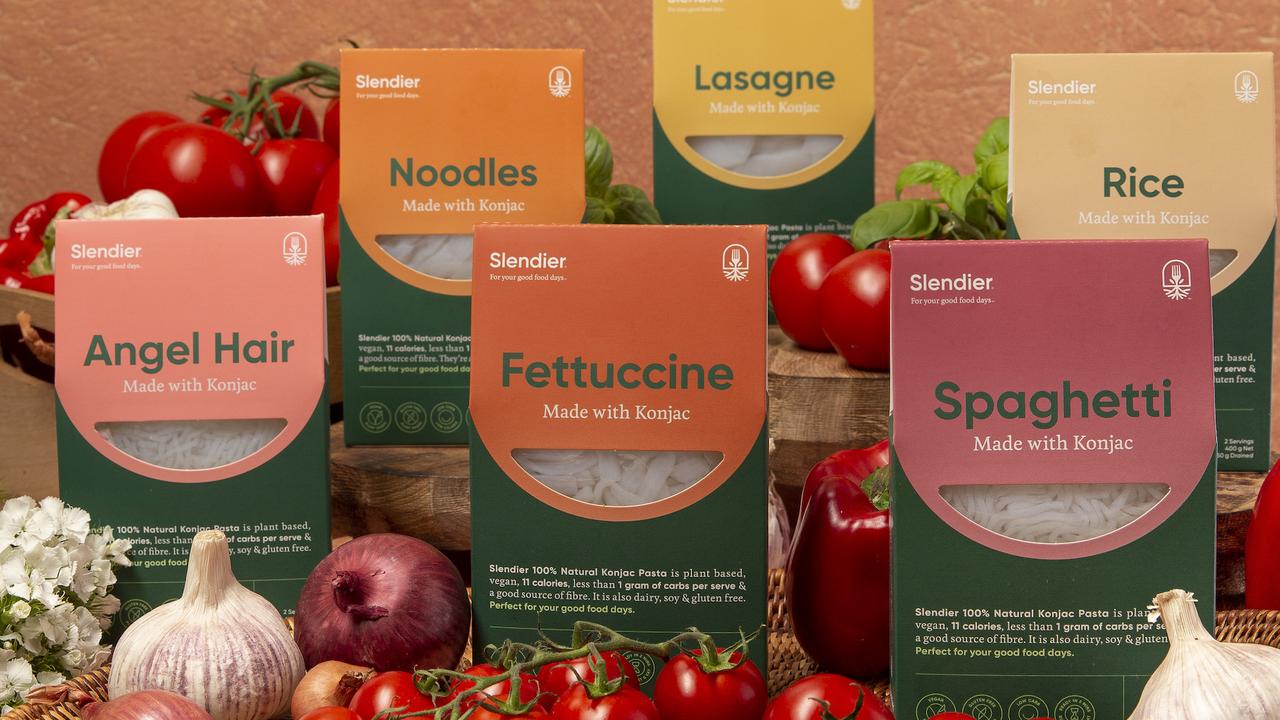
Since then she has received “beautiful” feedback from people who could eat pasta again after it avoiding it for years due to allergies or health concerns.
“It’s extremely high in dietary fibre and it has 10 calories per serve but it makes you feel full as it’s full of fibre,” she said.
“It absorbs the flavour of any sauce put with it as it has a neutral flavour.”
From there she expanded the range to pasta sauces such as red lentil sauce or eggplant and zucchini, different styles of pasta including edamame bean pasta and even a snacking line, such as seeded crackers and fruit bars.
“The one thing with my products that I’m adamant about is I don’t add anything artificial, so no artificial colours or preservatives,” she added.
“But you can quite easily take edamame pasta and red lentil sauce and it’s a quick dinner that you can whip up within 6 minutes that is healthy. I wanted to provide good pasta with natural ingredients that you can keep in your cupboard and know that in six to seven minutes you can give the family a great meal.”
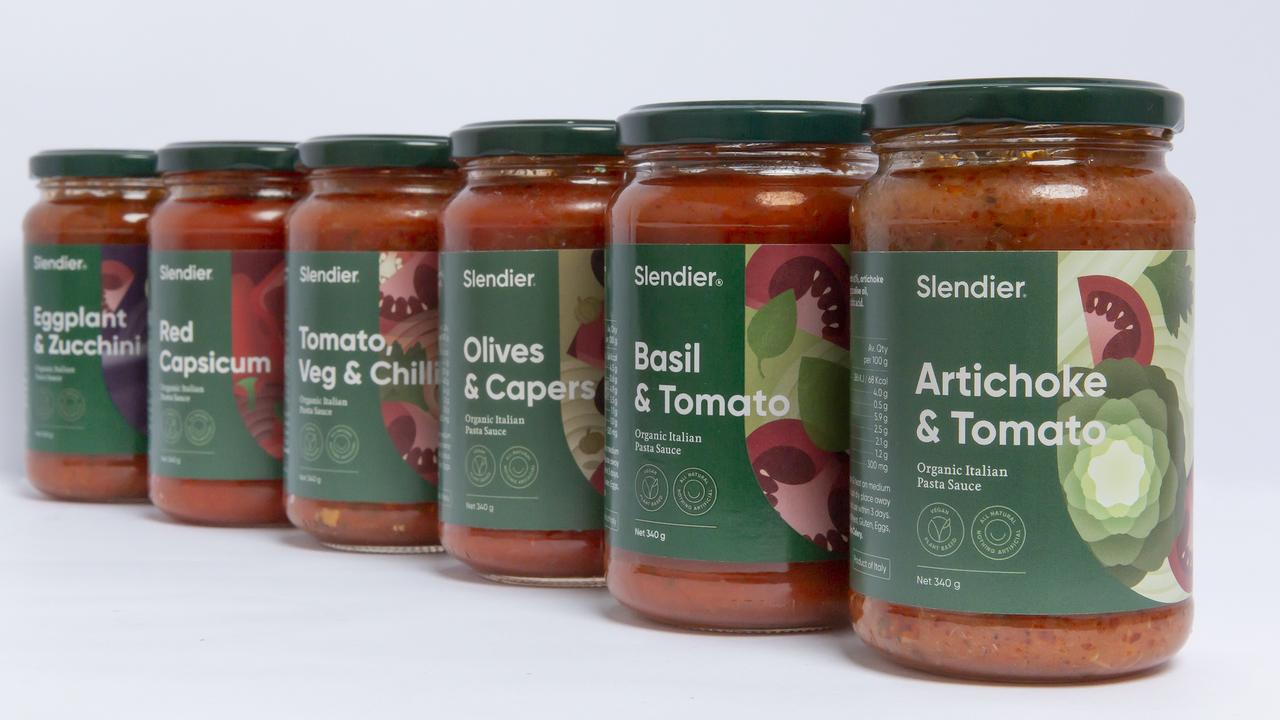
By the second year in business, Slendier has also scored listings in Coles and Woolworths.
Now five years since the business launched, its sales exceed $10 million a year.
Ms Hughes said this was a “wow dream” but having come from a banking background there was also planning and “science” behind achieving this goal.
However, she admits running a business during a pandemic has been a “rollercoaster”.
“We had a little bit of everything. At the start when everyone was panic buying we did quite well for the first few months and during lockdowns,” she said.
“But we saw massive supply chain issues hit, with a double whammy of logistics and shipping costs went up 400 per cent, and the price of raw material went up and there were delays everywhere – at port, at the factory and shutdowns everywhere – and no one could get staff.
“We couldn’t get product and had angry customers, so we had the highs and lows of the pandemic, but things for us are back to where they were in terms of logistics, supply chains and costs.”
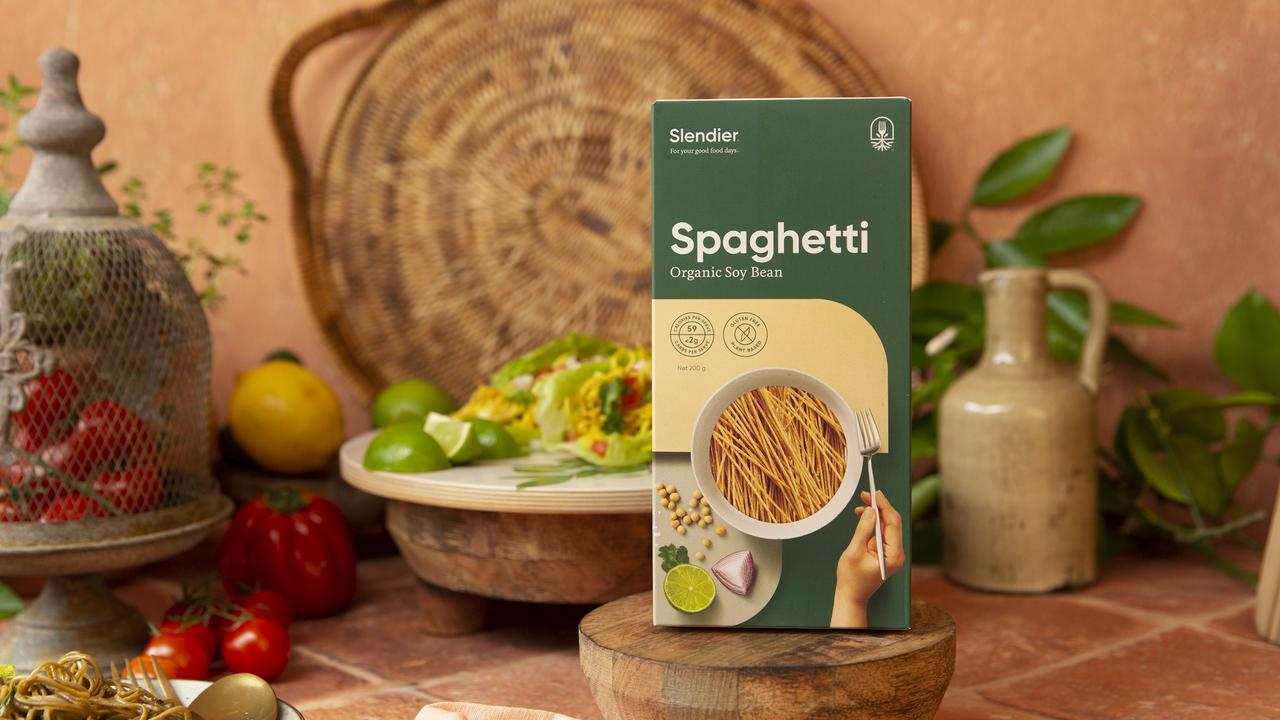
She describes the pandemic and running a business in general as giving her the best and worst days of her life.
“You will have the best days you’ve ever had of your career when you get big listings and you’re ahead of budget and think, ‘Wow I’m conquering the world’ but you also get the days waking up at 3am worried about cash flow and supply chains,” she said.
“All of those emotions have been heightened during the pandemic.”
For now, Ms Hughes is focused on creating more products and the couple live on the Mornington Peninsula where Andrew is “happy” and doing the best he can.
The Australian rice, pasta and sauce market is worth an estimated $1.25 billion and the European market is worth an estimated $45 billion and Ms Hughes is keen to take an even bigger share in the future.





